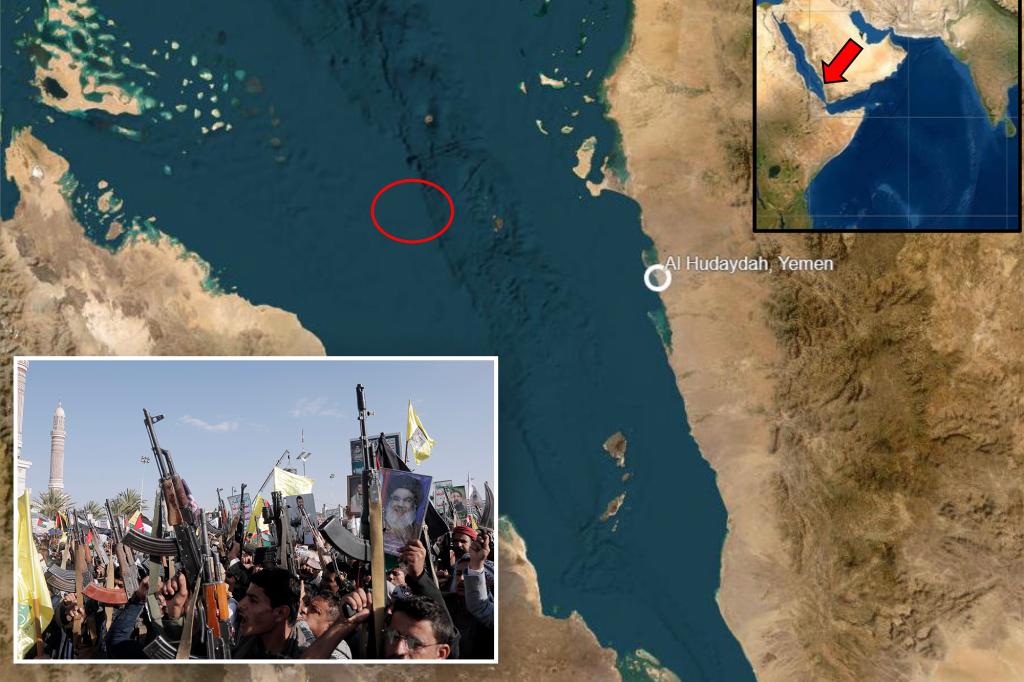A suspected attack by Yemen’s Houthi rebels targeted a ship in the Red Sea, signaling ongoing threats to vessels navigating through the region. The rebels have been active in targeting ships in response to conflicts in the Middle East, particularly the Israel-Hamas war in Gaza. The targeted ship, a Liberian-flagged chemical tanker, sustained damage from a projectile, although no injuries or fires were reported. Subsequent projectiles also struck the area around the vessel, highlighting the ongoing risks faced by ships in the region.
The attack on the ship in the Red Sea is part of a series of incidents in which the Houthi rebels have targeted merchant vessels with missiles and drones since the conflict in Gaza began. These attacks have resulted in the seizure and sinking of ships, as well as casualties among sailors. While the rebels claim to be targeting ships connected to Israel, the U.S., or the U.K., many of the attacked vessels have had little or no association with the conflict in Gaza, demonstrating the indiscriminate nature of the attacks. These incidents have raised concerns about the safety of ships passing through the Red Sea and the need for enhanced security measures to protect them.
The location of the ship at the time of the attack, near Hodeida, a Houthi-controlled port, indicates the rebels’ ability to launch attacks from strategic positions along the coast. While the rebels did not immediately claim responsibility for the attack, their past actions suggest a pattern of targeting ships in the region. The complexity of the conflict in the Middle East, involving multiple factions and interests, has created a volatile environment where maritime activities are at risk of being disrupted by armed groups like the Houthis.
The continuous threats posed by the Houthi rebels highlight the challenges faced by ships navigating through the Red Sea, a vital waterway for global trade. The region has historically been a key route for goods moving between Europe, Asia, and Africa, making it a prime target for attacks by armed groups seeking to disrupt maritime activities. Efforts by international coalitions to intercept missiles and drones targeting ships in the region have been partially successful, but the persistent threat of attacks underscores the need for heightened vigilance and security measures to protect vessels transiting through the Red Sea.
The involvement of private security firms like Ambrey in assessing and responding to maritime security threats reflects the growing concerns about the safety of ships in conflict zones like the Red Sea. These firms play a crucial role in providing intelligence and protection services to ships operating in high-risk areas, helping to mitigate the impact of attacks by armed groups. The identification of the targeted ship as having a “strong affiliation with the Houthi targeting profile” underscores the importance of understanding the motives and strategies of groups like the Houthis to anticipate and prevent future attacks on vessels passing through the region.
In conclusion, the recent attack on a ship in the Red Sea by Yemen’s Houthi rebels highlights the ongoing threats faced by vessels navigating through the region. As conflicts in the Middle East continue to escalate, the risks to maritime activities in key waterways like the Red Sea persist, underscoring the need for enhanced security measures and international cooperation to protect ships from armed groups seeking to disrupt trade and commerce. Efforts by private security firms and international coalitions to monitor and respond to maritime security threats are essential to safeguarding the interests of shipping companies and ensuring the safe passage of vessels through volatile regions like the Red Sea.















